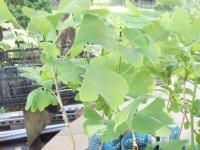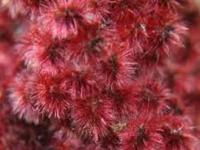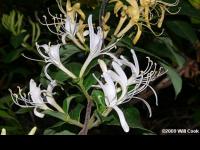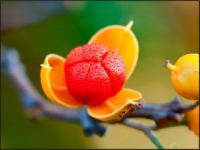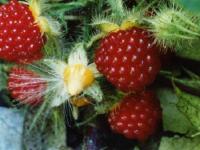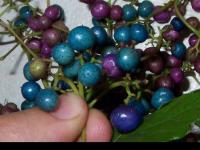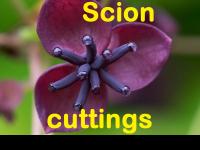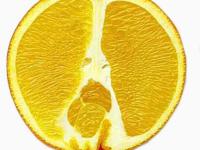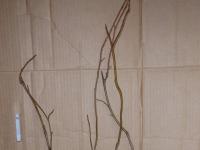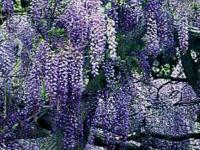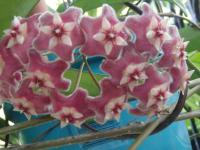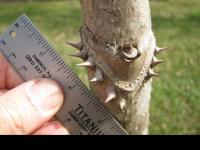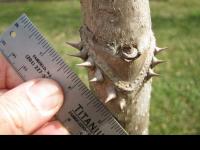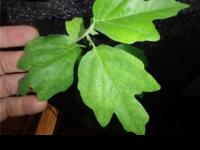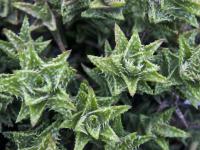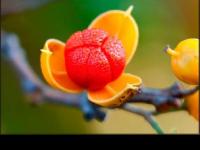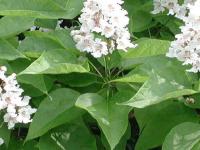Up for sale wood ash fertilizer about 6 oz each pack.
Wood ash fertilizer.
Pine wood, oak wood, spruce is used to make ash.
For the home gardener, wood ash can be a valuable source of lime, potassium and trace elements. Use One teaspoon of ash per liter of water every 2 month.
Since wood ash is derived from plant material, it contains most of the 13 essential nutrients the soil must supply for plant growth
When wood burns, nitrogen and sulfur are lost as gases, and calcium, potassium, magnesium and trace element compounds remain. The carbonates and oxides remaining after wood burning are valuable liming agents, raising pH, thereby helping to neutralize acid soils
Where soils are acid and low in potassium, wood ash is beneficial to most garden plants except acid-loving plants such as blueberries, rhododendrons and azaleas. Use wood ash on flower beds, lawns and shrubs.
One-half to one pound of wood ash per year is recommended for each shrub and rose bush. Spread ash evenly on the soil around perennial plants. Rake the ash into the soil lightly, being careful not to damage the roots. Never leave ash in lumps or piles, because if it is concentrated in one place, excessive salt from the ash will leach into the soil, creating a harmful environment for plants
Do not use if soil pH is more than 7.0 or if potassium levels are excessive.
In compost piles, wood ash can be used to help maintain a neutral condition, the best environment to help microorganisms break down organic materials. Sprinkle ash on each layer of compost as the pile is built up. Ash also adds nutrients to compost.
If used judiciously, wood ash can be used to repel insects, slugs and snails, because it draws water from invertebrates' bodies. Sprinkle ash around the base of your plants to discourage surface feeding pests. But once ash gets wet, it loses its deterring properties
Advice for using wood ashes as a soil or compost amendment:
Protect yourself when applying wood ash. Use the same precautions you would use when handling household bleach, another strongly alkaline material. Wear eye protection and gloves. Depending on the fineness of the ash, you may want to wear a dust mask.
Do not use ash on alkaline soils or on acid-loving plants such as citrus plants, potatoes, rhododendrons and blueberries.
Do not apply wood ash to a potato patch as wood ashes may favor the development of potato scab.
Do not apply ash to newly germinated seeds, as ash contains too many salts for seedlings.
Do not add ash with nitrogen fertilizers such as ammonium sulfate (21-0-0-24S), urea (46-0-0) or ammonium nitrate (34-0-0). These fertilizers produce ammonia gas when placed in contact with high pH materials such as wood ash.
So generally use them only if your soil pH is under 7.0 based on a soil test.
Payment must be received within 3 days after the auction ends. Feel free to ask me any questions about this item. I am always glad to help you.
Shipping and handling is $3.70 in USA. I usually ship Mondays and Tuesdays first class mail, more then one purchased - via Priority mail. International S&H $21.00 first class mail.
Should you have any questions don't hesitate to ask me at any time.
Here are some of the great garden plants that will appreciate using ash, they love neutral soils:
Evergreen shrubs
shown: Green Velvet boxwood (Buxus âGreen Velvetâ; Zones 6â8)
Daphniphyllum himalaense ssp. macropodum (Zones 7â8)
Photinia species (Zones 7â9)
Aucuba species (Zones 7â10)
Euonymus fortunei âEmerald Gaityâ, âSilver Queenâ, âEmerald n Goldâ (Zones 5â8)
California lilacs (Ceanothus spp.; generally Zones 8â10)
Deciduous shrubs
Daphne species (Zones 5â8)
Deutzia spp. (generally Zones 6â8)
Forsythia spp. (generally Zones 6â9)
Mock oranges (Philadelphus spp.; generally zones 5â9)
Lilacs (Syringa spp.; generally Zones 5â9)
Weigela spp. (generally Zones 5â9)
Spiraea spp. (Zones 3â8)
Perennials
Hellebores (Zones 4â8)
Pinks (Dianthus spp.; generally Zones 4â10)
Brunnera macrophylla âJack Frostâ and âLooking Glassâ (Zones 4â8)
Clematis spp. (generally Zones 3â8)
Potentilla spp. (generally Zones 5â8)
Scabiosa spp. (generally Zones 5â9)
Do not use it for those plants (they love acid soil)!!!:
Perennials for Acid Soil
Lupines Lupinus
Butterfly Weed Aesclepias
Turtlehead Chelone
Snakeroot Cimicifuga
Fringed Bleeding Heart Dicentra
Foxglove Digitalis
Gentian Gentiana
Primroses Primula
Trillium Trillium
Woodland Phlox Phlox stolon.
Virginia Bluebells Mertensia
Coral Bells Heuchera
Barrenwort Epimedium
Marsh Marigold Caltha
Lady Slipper Cypripedium
Hardy Ferns, most varieties
Groundcovers For Acid Soil
Winterberry Cornus canadensis
Wintergreen Gaultheria
Lilies of the Valley Convollaria
Bearberry Arctostaphylos
Miscellaneous Plants for Acid Soil
Wax Begonias
Calla Lilies
Narcissus
Potatoes
Plants that Indicate the Soil Might be Acid
Dandelions
Wild Strawberries
Ox Eye Daisies
Red Cedar
Dock (Rabbit Tobacco)
Cinquefoil
Plantain Wood ash fertilizer, soil neutralizer 6 Oz Tags: wood,ash,fertilizer,hard,oak,pine,spruce,maple,npk,nitrogen
Wood ash fertilizer.
Pine wood, oak wood, spruce is used to make ash.
For the home gardener, wood ash can be a valuable source of lime, potassium and trace elements. Use One teaspoon of ash per liter of water every 2 month.
Since wood ash is derived from plant material, it contains most of the 13 essential nutrients the soil must supply for plant growth
When wood burns, nitrogen and sulfur are lost as gases, and calcium, potassium, magnesium and trace element compounds remain. The carbonates and oxides remaining after wood burning are valuable liming agents, raising pH, thereby helping to neutralize acid soils
Where soils are acid and low in potassium, wood ash is beneficial to most garden plants except acid-loving plants such as blueberries, rhododendrons and azaleas. Use wood ash on flower beds, lawns and shrubs.
One-half to one pound of wood ash per year is recommended for each shrub and rose bush. Spread ash evenly on the soil around perennial plants. Rake the ash into the soil lightly, being careful not to damage the roots. Never leave ash in lumps or piles, because if it is concentrated in one place, excessive salt from the ash will leach into the soil, creating a harmful environment for plants
Do not use if soil pH is more than 7.0 or if potassium levels are excessive.
In compost piles, wood ash can be used to help maintain a neutral condition, the best environment to help microorganisms break down organic materials. Sprinkle ash on each layer of compost as the pile is built up. Ash also adds nutrients to compost.
If used judiciously, wood ash can be used to repel insects, slugs and snails, because it draws water from invertebrates' bodies. Sprinkle ash around the base of your plants to discourage surface feeding pests. But once ash gets wet, it loses its deterring properties
Advice for using wood ashes as a soil or compost amendment:
Protect yourself when applying wood ash. Use the same precautions you would use when handling household bleach, another strongly alkaline material. Wear eye protection and gloves. Depending on the fineness of the ash, you may want to wear a dust mask.
Do not use ash on alkaline soils or on acid-loving plants such as citrus plants, potatoes, rhododendrons and blueberries.
Do not apply wood ash to a potato patch as wood ashes may favor the development of potato scab.
Do not apply ash to newly germinated seeds, as ash contains too many salts for seedlings.
Do not add ash with nitrogen fertilizers such as ammonium sulfate (21-0-0-24S), urea (46-0-0) or ammonium nitrate (34-0-0). These fertilizers produce ammonia gas when placed in contact with high pH materials such as wood ash.
So generally use them only if your soil pH is under 7.0 based on a soil test.
Payment must be received within 3 days after the auction ends. Feel free to ask me any questions about this item. I am always glad to help you.
Shipping and handling is $3.70 in USA. I usually ship Mondays and Tuesdays first class mail, more then one purchased - via Priority mail. International S&H $21.00 first class mail.
Should you have any questions don't hesitate to ask me at any time.
Here are some of the great garden plants that will appreciate using ash, they love neutral soils:
Evergreen shrubs
shown: Green Velvet boxwood (Buxus âGreen Velvetâ; Zones 6â8)
Daphniphyllum himalaense ssp. macropodum (Zones 7â8)
Photinia species (Zones 7â9)
Aucuba species (Zones 7â10)
Euonymus fortunei âEmerald Gaityâ, âSilver Queenâ, âEmerald n Goldâ (Zones 5â8)
California lilacs (Ceanothus spp.; generally Zones 8â10)
Deciduous shrubs
Daphne species (Zones 5â8)
Deutzia spp. (generally Zones 6â8)
Forsythia spp. (generally Zones 6â9)
Mock oranges (Philadelphus spp.; generally zones 5â9)
Lilacs (Syringa spp.; generally Zones 5â9)
Weigela spp. (generally Zones 5â9)
Spiraea spp. (Zones 3â8)
Perennials
Hellebores (Zones 4â8)
Pinks (Dianthus spp.; generally Zones 4â10)
Brunnera macrophylla âJack Frostâ and âLooking Glassâ (Zones 4â8)
Clematis spp. (generally Zones 3â8)
Potentilla spp. (generally Zones 5â8)
Scabiosa spp. (generally Zones 5â9)
Do not use it for those plants (they love acid soil)!!!:
Perennials for Acid Soil
Lupines Lupinus
Butterfly Weed Aesclepias
Turtlehead Chelone
Snakeroot Cimicifuga
Fringed Bleeding Heart Dicentra
Foxglove Digitalis
Gentian Gentiana
Primroses Primula
Trillium Trillium
Woodland Phlox Phlox stolon.
Virginia Bluebells Mertensia
Coral Bells Heuchera
Barrenwort Epimedium
Marsh Marigold Caltha
Lady Slipper Cypripedium
Hardy Ferns, most varieties
Groundcovers For Acid Soil
Winterberry Cornus canadensis
Wintergreen Gaultheria
Lilies of the Valley Convollaria
Bearberry Arctostaphylos
Miscellaneous Plants for Acid Soil
Wax Begonias
Calla Lilies
Narcissus
Potatoes
Plants that Indicate the Soil Might be Acid
Dandelions
Wild Strawberries
Ox Eye Daisies
Red Cedar
Dock (Rabbit Tobacco)
Cinquefoil
Plantain Wood ash fertilizer, soil neutralizer 6 Oz Tags: wood,ash,fertilizer,hard,oak,pine,spruce,maple,npk,nitrogen
00581
Payment Methods




Shipping
USPS, $8.60
Payment Policy
We do accept PayPal, personal checks, cash, money orders, Western Union and money-gram.
Shipping Policy
Shipping items right after received payment within 3-5 days.
Plants will be packed securely in the box, preventing it from shifting inside the box, with adequate moisture in the soil or around the roots in case of bare rooted plants during the dormancy.
Return/Exchange Policy
We guarantee plants and/or plant material will arrive alive and safe. If there is a damage to the plant during the shipping please contact us very same day of delivery with the pictures showing the damage so we can see it. We will do everything possible to correct it.
Please Login or Register first before asking a question.









